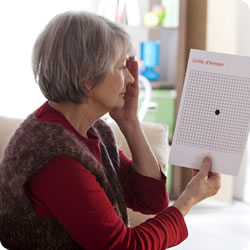 South Australians over 50 with undiagnosed visual problems may be a risk of being misdiagnosed with cognitive impairments according to new research from the University of South Australia (UniSA).
South Australians over 50 with undiagnosed visual problems may be a risk of being misdiagnosed with cognitive impairments according to new research from the University of South Australia (UniSA).
Lead Researcher and PhD candidate at UniSA, Anne Macnamara, said cognitive tests that relied on vision-dependent tasks could be skewing results in up to a quarter of people aged over 50 who had undiagnosed visual problems such as cataracts or age-related macular degeneration (AMD).
Miss Macnamara said age-related macular degeneration was a leading cause of vision loss for older people.
“It doesn’t cause complete vision loss, but severely impacts people’s ability to read, drive, cook and even recognise faces,” she said.
“It has no bearing on cognition.”
Miss Macnamara said the study’s results were a stark reminder that visual impairments unfairly affected cognitive scores when tests involved visual abilities.
“A mistaken score in cognitive tests could have devastating ramifications, leading to unnecessary changes to a person’s living, working, financial or social circumstances,” she said.
“For example, if a mistaken score contributed to a diagnosis of mild cognitive impairment, it could trigger psychological problems including depression and anxiety.”
Miss Macnamara said visual impairments were often overlooked in research and clinical settings, with reduced vision underestimated in up to 50 per cent of older adults.
She said it was critical for neuro-degenerative researchers to control for vision when assessing people’s cognition.
“Mobile apps can now be used to overlay simulated visual impairments onto test materials when piloting their stimuli,” she said.
“Also, researchers can incorporate quick and simple screening tasks before getting people to do cognitive tests.”
The six-page study, The effect of age-related macular degeneration on cognitive test performance, can be accessed on Scientific Reports at this PS News link.



